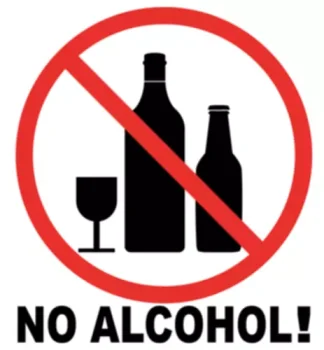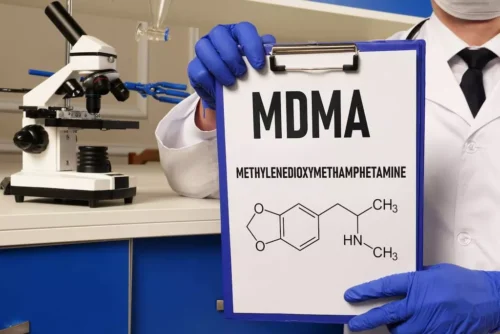
Similarly to the intestine, the lung epithelial barrier is affected by chronical alcohol abuse as well, contributing to the pathophysiology of acute respiratory distress syndrome or acute lung injury. Summarizing this, it is evident that alcohol significantly impacts different cells of the innate immune arm, and different tissues, by modulating phagocytosis and/or oxidative burst. Mostly chronic alcohol consumption goes hand in hand with impaired macrophage and/or neutrophil functions. With regard to cell-mediated immunity, a reduction in CD3+, CD4+, and CD8+ cell numbers has been found after chronic alcohol administration in male ratsReference Boyadjieva, Dokur, Advis, Meadows and Sarkar19.
- Friends, dates, and co-workers would sometimes look at her like she had “nine heads,” she says, when she wouldn’t order a drink.
- In addition, the magnitude of antibody response following vaccination with Hepatitis B is lower in alcoholics compared to controls (Nalpas, Thepot et al. 1993).
- To this end, one study analyzed IL-10, IL-6, IL-18, and tumor necrosis factor α (TNF-α) levels in 25 non-treating seeking heavy drinkers after they had consumed an alcoholic drink.
- “Alcohol has diverse adverse effects throughout the body, including on all cells of the immune system, that lead to increased risk of serious infections,” said Dr. E. Jennifer Edelman, a Yale Medicine addiction medicine specialist.
- Treatment can reduce your risk of hospitalization by more than 50% and reduce your risk of death.You can also visit a Test to Treat location.
- However, all immunoglobulins produced by one B-cell and its daughter cells specifically recognize the same antigen.
Risk factors for alcohol use disorder
A great number of studies have also focused on the induction of apoptosis in PMNs and their longevity in the case of inflammation. Modern research has also proven that innate and adaptive immunity are not two separate compartments of immunity but, rather, interchanging and simultaneous components of host defense. Therefore, it is of crucial interest to look into adaptive immunity when discussing the effect of alcohol on the human body. With a few exceptions, our understanding of the influence of alcohol on healthy individuals is rather limited and modern assays, as well as studies with this population, might offer new perspectives into alcohol research. Potential intracellular target points for (i) acute alcohol and (ii) chronic alcohol in a stylized cell. The induction of canonical NF-κB with p50–p65 translocation to nucleus via pattern recognition receptors (PRR) is outlined by, for example, TLR4 and MyD88 activation.
Alcohol distracts the body from other functions
Acetate is then released into the blood where it is oxidized to carbon dioxide in the heart, skeletal muscle, and brain (Zakhari 2006). Those who have any of the known risk factors for COVID-19, like heart disease or diabetes, should drink even less. Drinking also makes it harder for your body to properly tend to its other critical functions, like fighting off a disease. Alcohol has been flying off the shelves as people try to combat boredom during lockdown, with some reports estimating that alcoholic beverage sales surged by 55 percent toward the end of March. «Anything above that, regardless of time period, is exposing your body to more alcohol than is ideal,» says Favini. And prolonged alcohol use can lead to mental health conditions like anxiety and depression.
Effects on B-Cells
For example, alcohol can reduce the ability of respiratory epithelium cells to remove mucous from the lungs, which can directly damage lung tissue and weaken the proper functioning of the lungs over time. Although this chronic weakening of lung function may not cause any immediate symptoms, these effects can manifest when a severe respiratory infection occurs. Alcohol also causes damage to the cells in the outside layer of your stomach and intestines. As a result, bacteria may leak from the GI tract into your bloodstream, which can itself make you sick. Also, bacteria that escape this area can change the immune system in your liver, which can lead to inflammation and, potentially, alcoholic liver disease. In conclusion, alcohol can enable pathogens to enter the systemic blood flow, a process that may lead to an increased susceptibility of patients with infections.
This outcome underscores the importance of taking into account the amount of alcohol consumption when evaluating the immune response. Therefore, further studies focused on drinking pattern are necessary to elucidate the effect of moderate alcohol consumption on the immune response. Acute and chronic alcohol exposure can interfere with various aspects of the adaptive immune response, including the antigen presentation required to activate T- and B-cells, the activity of CD4+ and CD8+ T-cells, and the activity of B-cells. This alcohol-mediated dendritic cell dysfunction prevents the organism from generating virus-specific adaptive immune responses involving CD4+ and CD8+ lymphocytes, which may contribute to the acquisition and persistence of hepatitis C infection (Siu et al. 2009). The innate cellular response, which is mediated primarily by monocytes/macrophages and neutrophils, involves the recognition, phagocytosis, and destruction of pathogens—processes essential to subsequent adaptive responses.

Conditions that can increase risk
Human culture is often interweaved with the consumption of alcohol, in both drinking habits, its acute or chronical misuse. Apart from behavioral effects as often observed in intoxicated individuals, alcohol consumption also leads to immunological modulation on the humoral and cellular levels. In the last 20 years, major advances in this field of research have been made in clinical studies, as well as in vitro and in vivo research. As every physician will experience intoxicated patients, it is important to be aware of the changes that this cohort undergoes. The induced innate humoral response plays a critical role in clearing or containing infection while an adaptive response develops.
- The adaptive immune system can be further subdivided into cell-mediated immunity and humoral immunity.
- Similarly, wine intake, especially red wine, has been identified as having a protective effect against the common coldReference Takkouche, Regueira-Mendez, Garcia-Closas, Figueiras, Gestal-Otero and Hernan29.
- Combined differences in pharmacokinetics may increase the vulnerability of women to the effects of ethanol.
- The researchers found that before the monkeys had free access to alcohol, they all demonstrated comparable responses to the vaccinations.
- These micronutrients have been shown to play an important role in immune system homeostasis and response to infection (Mora, Iwata et al. 2008).

Women drinking fewer than two drinks at a time and men drinking fewer than three drinks at a time is considered moderate drinking. Alcohol consumption can allow the hepatitis virus to persist as a chronic condition, and alcohol use disorder combined with hepatitis often accelerates liver disease progression. When ALD reaches its final stage, known as alcoholic liver cirrhosis, the damage is irreversible and leads to complications. The damage is irreversible because scar tissues build up and replace the liver’s regenerative cells, preventing the organ from healing. Gut barrier damage can make the body more vulnerable to food poisoning, and epithelial cell damage can hinder the intestines’ ability to absorb nutrients.
Both innate and adaptive immunity rely on a multitude of different cells and molecules. Thus, both types of immunity are mediated partly by the actions of specific immune cells (i.e., include a cell-mediated response) and partly by the actions of molecules secreted by various immune cells (i.e., include a humoral response). Several lines of evidence suggest that alcohol consumption exerts a dose-dependent impact on the host response to infection. Chronic does alcohol weaken your immune system alcohol abuse leads to increased susceptibility to bacterial and viral infections, most notably a 3 to 7-fold increase in susceptibility (Schmidt and De Lint 1972) and severity (Saitz, Ghali et al. 1997) of bacterial pneumonia compared with control subjects. Similarly, the incidence of Mycobacterium tuberculosis infection among alcoholics is increased (Sabot and Vendrame 1969, Hudolin 1975, Kline, Hedemark et al. 1995, Panic and Panic 2001).

Drinking every day or drinking too much alcohol at a time may affect the immune system more than drinking every other day or every few days, but the healthiest thing to do is abstain from drinking completely. Alcohol also impacts the function of immune cells of the central nervous system (CNS), particularly astrocytes and microglia. Astrocytes are https://ecosoberhouse.com/article/kudzu-extract-and-alcohol-addiction-can-it-help-you-drink-less/ major glial cells that regulate neuronal function and CNS homeostasis. Their ability to serve as antigen presenting cells and produce cytokines in vivo has been controversial (Dong and Benveniste 2001). In vitro studies have shown that acetaldehyde modulates cytokine production by astrocytes in a dose-dependent manner (Sarc, Wraber et al. 2011).

 ENG
ENG